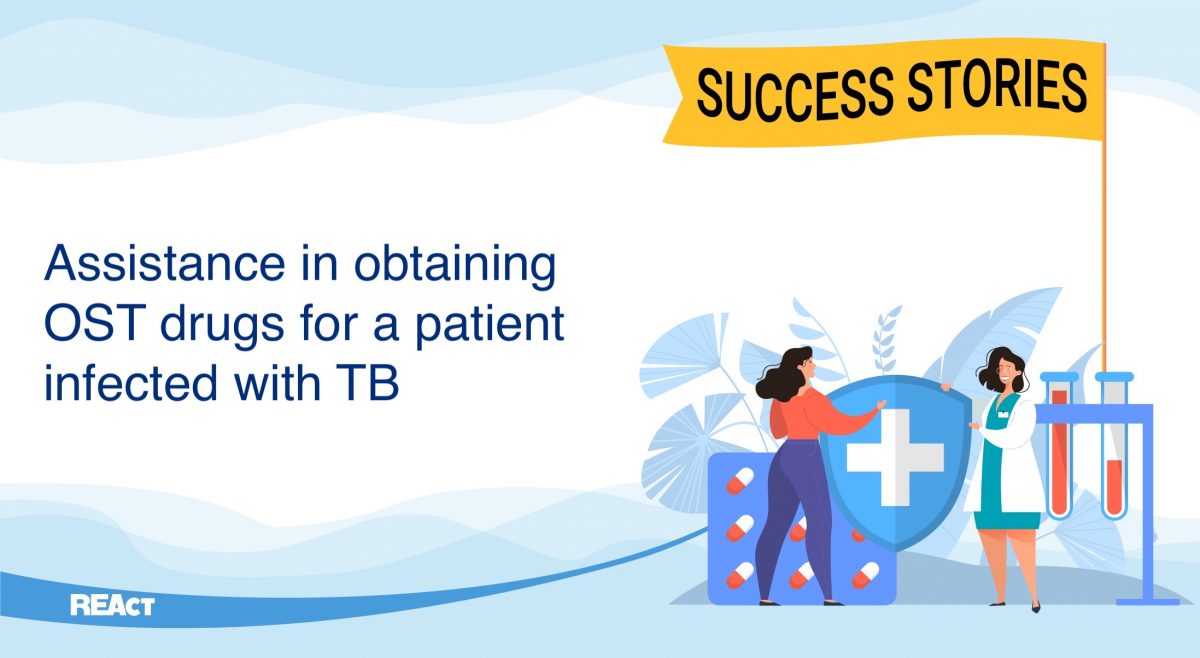The REAct project was approached by a woman who has a case of microbiologically proven multidrug-resistant TB with confirmed resistance to all available TB drugs, essentially being on palliative care. A few years ago, the woman joined the opioid substitution therapy program while in the palliative care department of the city TB center.
In May of this year, the woman was discharged from the TB facility and started living with her husband, who also has MDR-TB. To continue with her OST, she came to see the addiction treatment practitioner in the area where she was residing, but was refused service. The doctor, despite the patient’s active TB diagnosis, would not switch her to a self-administered OST regimen, looking for excuses and giving frivolous reasons, such as a purportedly forged discharge summary, lack of verified data on her TB diagnosis, etc. One of his arguments was that the National Health Service of Ukraine had signed a service agreement with his hospital for treating a certain number of patients and he would not take on any above-the-limit workload as “it’s not paid for.”
The situation was complicated by the fact that due to her condition related to both her TB and other diseases, as well as her state caused by the lack of access to Methadone, the client was unable to visit the addiction treatment specialist on a daily basis and collect additional documents. Essentially, according to Order No. 200 of the Ministry of Health of Ukraine dated March 27, 2012, “On Approval of the Procedure for Substitution Maintenance Therapy for Patients with Opioid Dependence,” the woman was supposed to receive her drugs in a home setting as a palliative care patient (home hospital).
The REActor helped the client compose a statement to the chief physician doctor of the medical institution, made a phone call to the hotline for OST patients and provided all copies of medical records required. After that, the hotline staff informed the chief regional drug addiction specialist about this case and arranged that the patient would be provided with transportation to come and take care of all procedures during the day and finally get registered for a self-administered OST regimen so that the medications can be dispensed in seven-day supply batches. Thus, thanks to the well-coordinated efforts of REAct and the OST hotlineemployees, the client succeeded in accessing substitution therapy.


